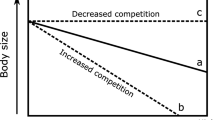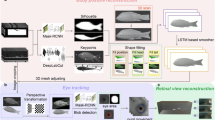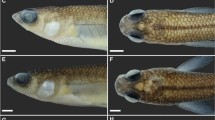Abstract
MR. WALLACE'S note with the above title in NATURE (vol. xl. p. 619) contains an illustration of a kind of reasoning that is so common with the post-Darwinians (I know of no other concise expression to designate this class of thinkers) that I desire to call attention to it. His remarks are àpropos of the twist in the skull of the flat-fishes, and of Dr. Lankester's comments on the explanation of its origin offered in his book “Darwinism.” Mr. Wallace has, as it appears to me justly, ascribed the rotation of the eye of these fishes to the “transmission of a series of slight shiftings of the eye acquired in successive generations by the muscular effort of the ancestors of our present flat-fish” (Lankester, in NATURE, vol. xl. p. 568). This, observes Lankester, pointedly, is “flat Lamarckism.” Now Mr. Wallace explains that he has added the following language, which he thinks negatives the explanation cited by Dr. Lankester; “those usually surviving whose eyes retained more and more of the position into which the young fish tried to twist them.” Mr. Wallace then says that the “survival of favourable variations is even here the real cause at work.”
This is a preview of subscription content, access via your institution
Access options
Subscribe to this journal
Receive 51 print issues and online access
$199.00 per year
only $3.90 per issue
Buy this article
- Purchase on SpringerLink
- Instant access to full article PDF
Prices may be subject to local taxes which are calculated during checkout
Similar content being viewed by others
Author information
Authors and Affiliations
Rights and permissions
About this article
Cite this article
COPE, E. Lamarek versus Weismann. Nature 41, 79 (1889). https://doi.org/10.1038/041079d0
Issue date:
DOI: https://doi.org/10.1038/041079d0



